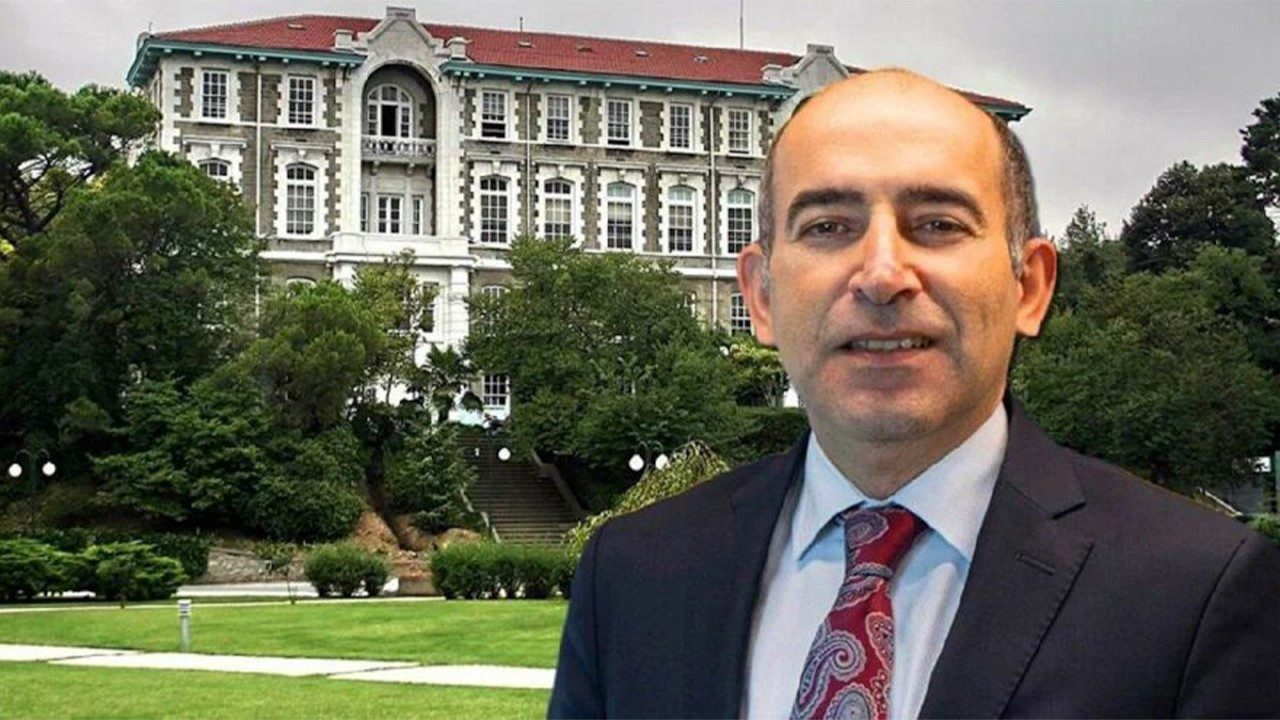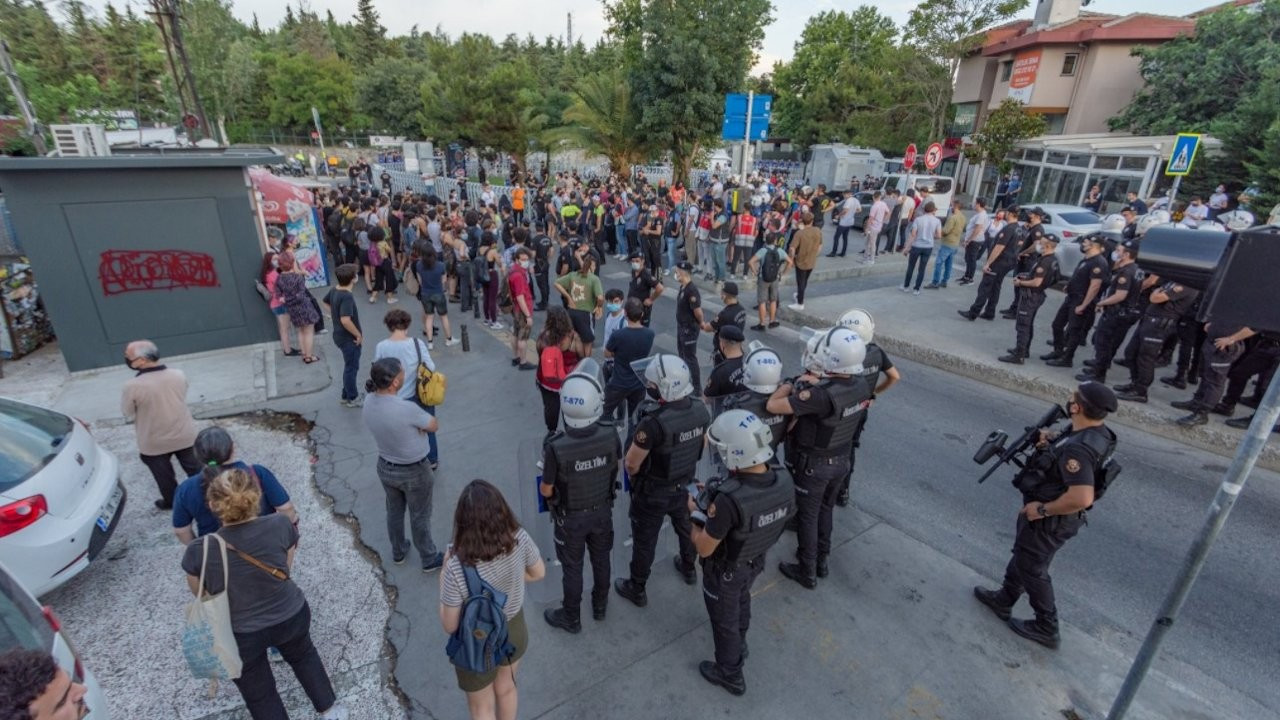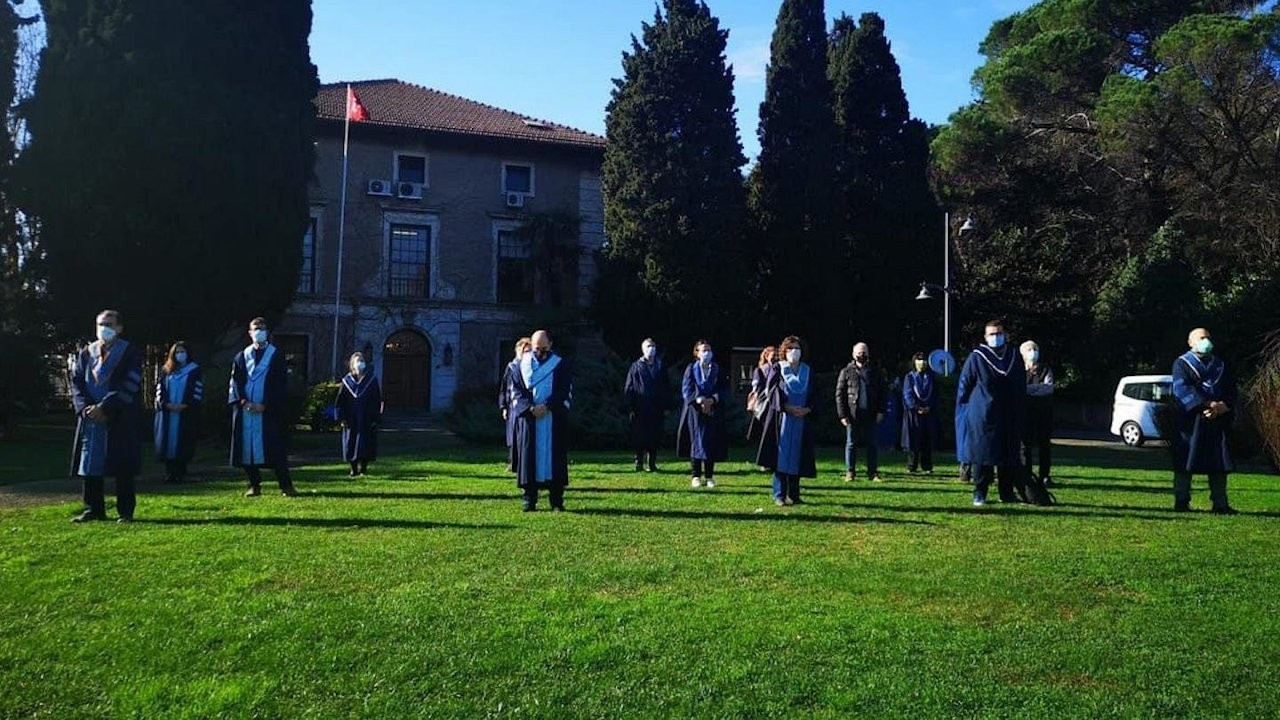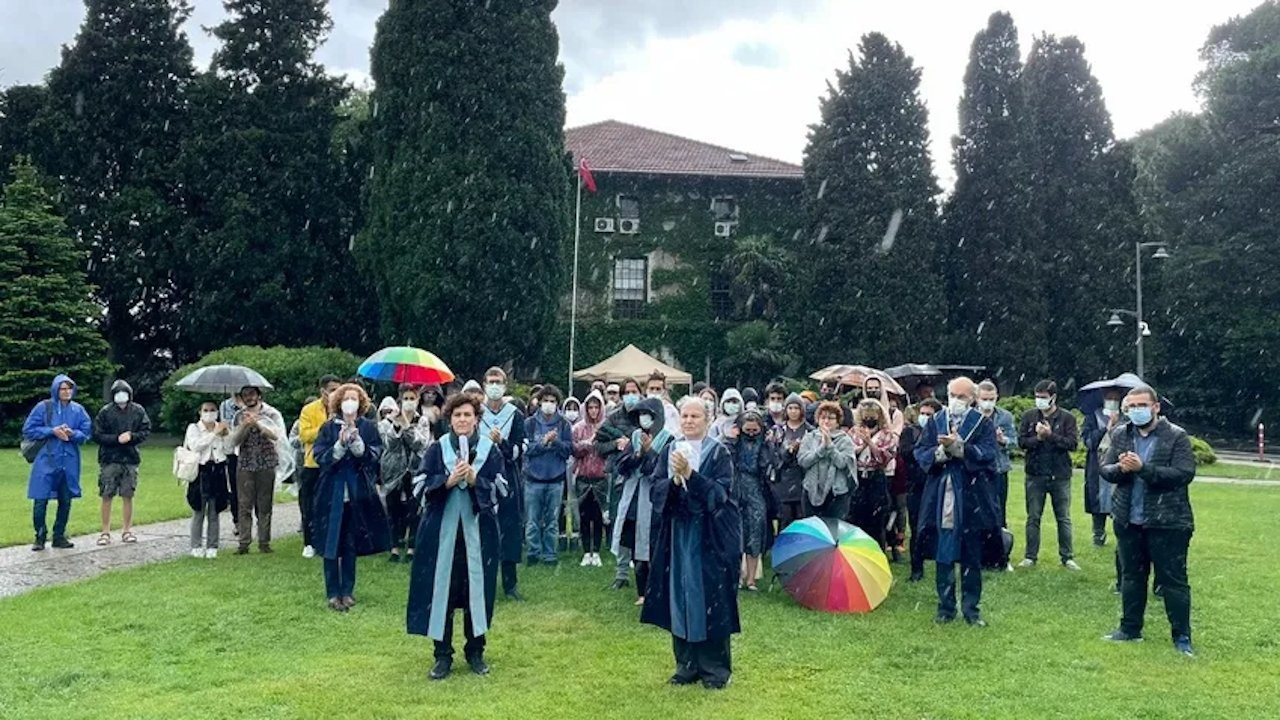Boğaziçi University's provisional rector dismisses prominent academic
Boğaziçi University's provisional rector Naci İnci has dismissed a prominent academic who had been outspoken during the months-long protests against Erdoğan's rector appointment.
Duvar English
Boğaziçi University's provisional rector Naci İnci has dismissed prominent academic and documentary filmmaker Can Candan, who had been outspoken during the months-long protests against President Recep Tayyip Erdoğan's rector appointment to Turkey's most prestigious higher education institution.
Candan shared a notice sent to him by İnci, saying that the decision was adopted without consultation of his fellow department and faculty members.
Among the reasons for the dismissal was a disciplinary investigation over posts that allegedly insulted the university's administrators, the notice said.
Naci İnci, bugün bana 2007'den bu yana öğretim görevlisi olarak çalıştığım Boğaziçi'ndeki görevime, ders verdiğim bölüm ve fakültenin görüşü alınmadan "vekaleten" son verdiğine dair bir yazı göndermiş. Sizlerle paylaşıyor, yorumunu ve değerlendirmesini de sizlere bırakıyorum. pic.twitter.com/6cdSEeuPkF
— Can Candan (@yunusunbabasi) July 16, 2021
It also said Candan had not applied to be re-appointed to his position after his term ended on July 15.
İnci became the provisional rector after Erdoğan sacked Melih Bulu as the rector of the university on July 15 following some six months of protests against his appointment. Students and academics are set to continue protests.
Bulu, a figure with weak credentials, known academic plagiarism and links to the ruling Justice and Development Party (AKP), struggled for months to find a deputy for himself since the overwhelming majority of the academics protested his appointment. He finally found Naci İnci for the position.
Zeynep Gambetti, associate professor of political theory at Boğaziçi, told Reuters that Bulu's dismissal was a result of protests but that it did not mean government pressure on the university would cease.
"We were not protesting against Melih Bulu's person. We were against the method of appointment and that he was chosen not through merit but loyalty," she said.
"We will continue to request the resignation of all administrative staff that were appointed, including the deputy rectors," Gambetti said.
Protests to continue
She added protests would continue until a rector was chosen by university members, academic freedoms were secured and the presidential power to appoint a rector was revoked.
Faculty members would work to choose their own candidate, Gambetti added.
A pro-government commentator cited unnamed sources as saying the High Education Board (YÖK) had unanimously sought Bulu's dismissal and Ankara felt he failed to carry out desired steps, notably setting up law and communication faculties.
"As a Boğaziçi alumnus, I am concerned about the possibility of a harsher a more hawkish rector being appointed," commentator Nagehan Alçı wrote in a column in Haberturk newspaper.
Another decree by Erdoğan in February to launch new Boğaziçi faculties brought a legal challenge from academics concerned about political intervention in the institution's autonomy.
In the Official Gazette of July 16, the Boğaziçi rector's office sought three teaching staff for the new law faculty in a recruitment advertisement.
The move came after a Boğaziçi senate meeting on July 7 voted against appointing members to the faculty, according to a record of that meeting.

 After six months of protests, Erdoğan sacks Boğaziçi University's appointed rectorEducation
After six months of protests, Erdoğan sacks Boğaziçi University's appointed rectorEducation Boğaziçi University's appointed rector bars academics, students from entering campusEducation
Boğaziçi University's appointed rector bars academics, students from entering campusEducation 'Neoliberal authoritarianism at its best': Boğaziçi University academics defy Erdoğan's rector appointmentPolitics
'Neoliberal authoritarianism at its best': Boğaziçi University academics defy Erdoğan's rector appointmentPolitics Boğaziçi University academics say senate is being seized by pro-gov't figuresEducation
Boğaziçi University academics say senate is being seized by pro-gov't figuresEducation